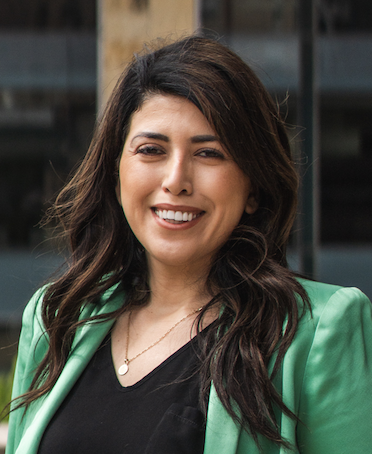Across the country, municipal leaders are recognizing the importance and taking action to ensure early childhood success as a key strategy to a thriving community. NLC reached out to District 2 Austin City Councilwoman Vanessa Fuentes to ask what is on her mind about early childhood success.

Councilwoman Vanessa Fuentes,
Austin, Texas
What is one thing keeping you up at night when you think about the young children and families in your community?
Childcare accessibility and affordability is a huge issue impacting families in Austin and my district, which is a notable childcare desert. My constituents, working families, often face barrier after barrier to childcare, from high costs to limited hours of operation. When parents are at work from 7 am to 7 pm, reliable childcare options are close to zero – hardly any childcare facilities are open at 6 am or on the weekends. To better understand the reality of this issue, I joined my colleague Council Member Alison Alter to advocate for City funding to study access to childcare during nontraditional hours in Austin. Our partners, the Urban Institute, found that only four percent of regulated childcare providers are approved to operate during nontraditional hours. Childcare for infants and toddlers is even more difficult to access and tends to be more expensive than childcare for older children. As the cost of living continues to rise, the cost of childcare also rises. Unfortunately, wages and income are not seeing the same increase. On average, full-time childcare costs $1100 a month for one child, and yet the federal minimum wage remains $7.25 an hour. In the same vein, another critical challenge is securing living wages for childcare workers, who are historically overworked and underpaid. Unsurprisingly, compared to other states, Texas continues to lag behind pre-pandemic employment in the childcare industry, largely due to pay insecurity.
How as a municipal leader are you keeping the early childhood community, young children and their families at the center of local governance?
I represent working families in Southeast Austin. For years, I’ve heard from community members and witnessed the difficulty they experienced in finding accessible and affordable childcare. As my very first policy in 2023, I was extremely excited to introduce and sponsor a policy that increases childcare access throughout the city by reducing zoning-related barriers to opening new or expanding existing childcare centers, including home-based childcare. The policy also establishes a grant program to secure new childcare programs (inclusive of licensed centers and licensed/registered family childcare homes) in childcare deserts and loosens parking restrictions to ensure more space is used to serve the children of our community. I will continue to work with our City staff, community partners, and constituents to ensure every family in every neighborhood has access to affordable childcare services.
As the Chair of the Public Health Committee, I have made it a part of my mission to approach each issue that comes through the committee with an emphasis on the impact on family and child wellbeing. I am also the proud sponsor of the City of Austin’s proclamation recognizing the Week of the Young Child. The proclamation is part of a larger commitment to support the young children and families in our City and to honor the early childhood educators and service providers who serve them.
What is one way your city is supporting early childhood opportunities?
In response to the Covid-19 pandemic, the City of Austin allocated $6 million in CARES Act and local City SAVES funding to provide emergency stabilization grants before the state of Texas deployed any funding for childcare. Local dollars also went to building systems of support for family-based childcare programs, gaining a better perspective on the need for childcare in nontraditional hours, and providing needed wage stipends for the childcare workforce to acknowledge their role as essential workers. The City of Austin also entered a partnership with the United Way of Greater Austin to administer $3.5 million in emergency childcare and family support services. This utilized a portion of the $11 million available in ARPA funds dedicated specifically to strengthening our local education, health, and workforce systems. Of note, $750,000 were allocated for dual language full-day Pre-K 4 at Del Valle ISD. I’m particularly proud of this investment as it provided universal Pre-K to a community population that is largely Latino. These funds have been the only way several childcare facilities have been able to remain open and service families during the pandemic and expanded Pre-K access in a known childcare desert.
Unfortunately, since the emergency pandemic funds were one-time funds, the financial support will end in the coming year. The City, in partnership with Travis County, and community partners, is assessing how to support expanding access to childcare for families in Austin. One solution that is being explored is to develop a local dedicated funding stream for childcare through a voter-approved children’s fund. The idea around this policy is to set aside a portion of local tax revenue specifically to expand access to quality childcare that especially meets the needs of working families across all early childhood settings, especially for those families in populations that have been historically marginalized. I look forward to working with my colleague, Council Member Alison Alter, a longtime champion of childcare access, and with the rest of my colleagues on furthering this initiative.
This blog post is part of the On Your Mind series featuring local leaders and early childhood champions across the country. NLC’s Early Childhood Success team supports members so every city, town, and village has healthy babies and happy families, and all children are thriving by 3, ready at 5, and on their way by 8, So All Children Thrive. Contact the team at ECteam@nlc.org and sign up for the quarterly newsletter.









